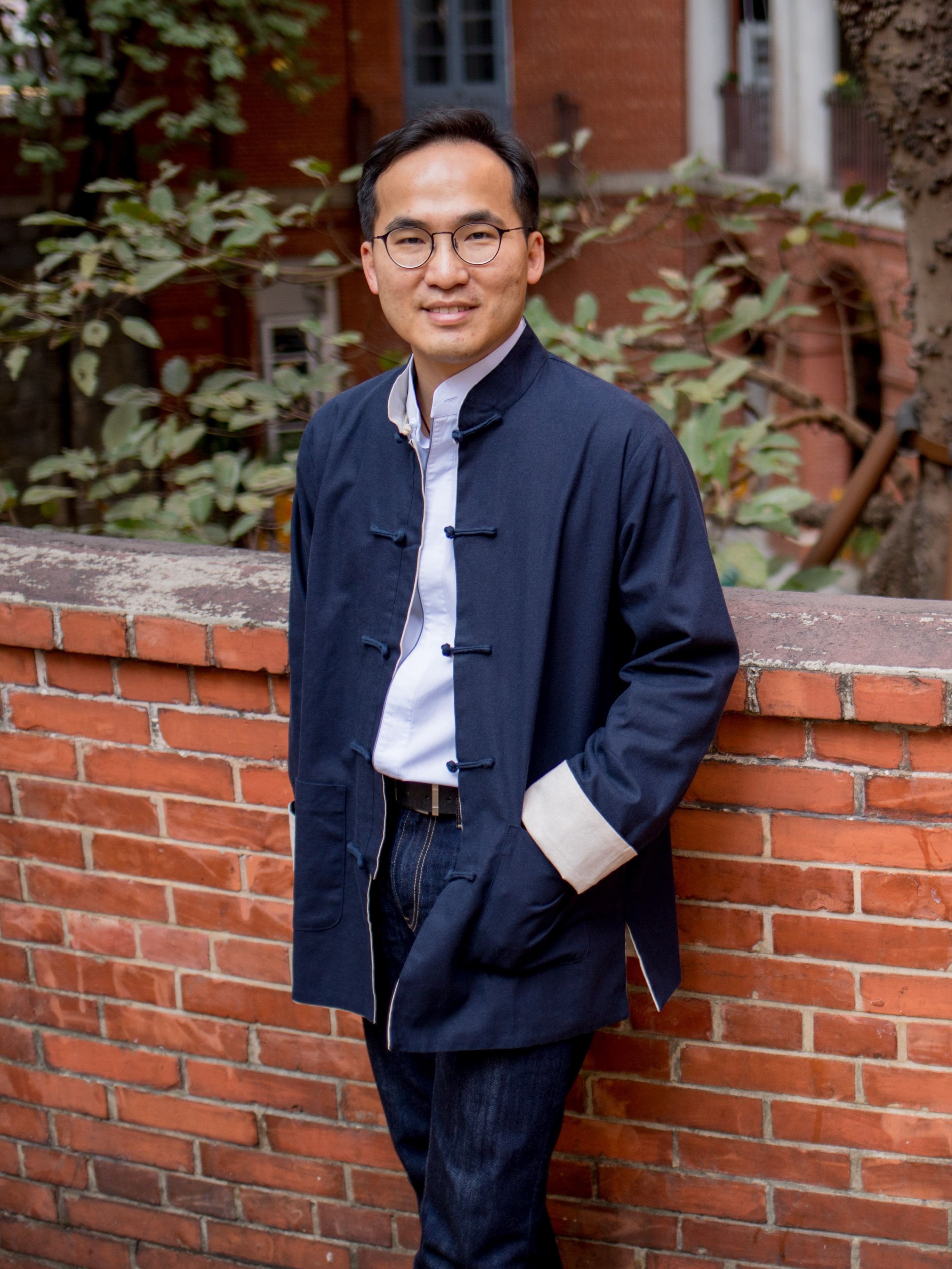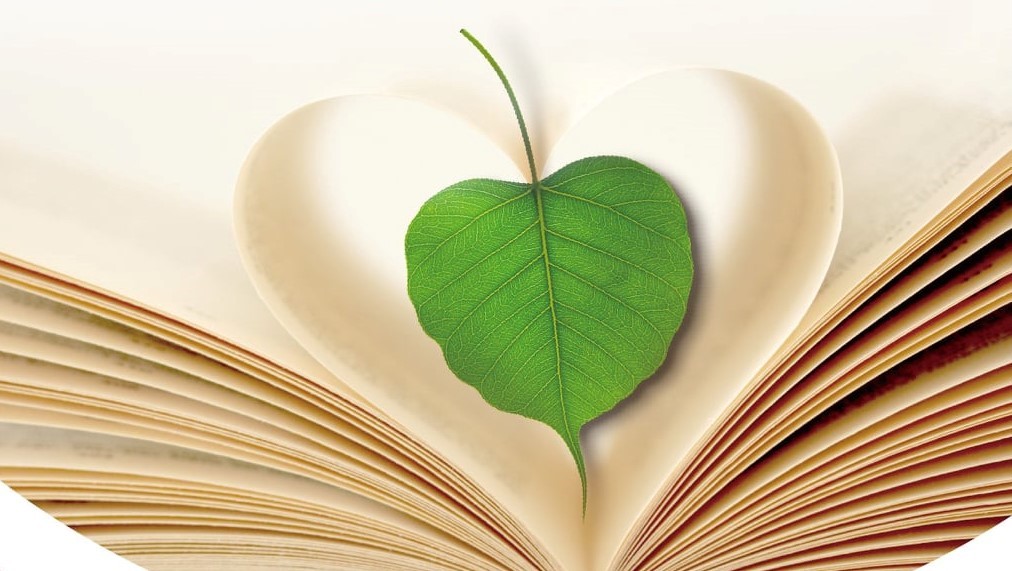Welcome to our series of conversations with participating speakers at this year’s Tung Lin Kok Yuen International Conference – Buddhist Canons: In Search of a Theoretical Foundation for a Wisdom-oriented Education (27–28 November 2021). In each blog post, I speak with keynote speakers and paper presenters about their subject at this conference.
Register for this insightful symposium here.
From Tradition to Innovation: Wisdom-oriented Education in Buddhist Theory and Practice
Dr. Ernest C. H. NG is an Adjunct Assistant Professor at the CBS, HKU where he teaches undergraduate and postgraduate courses on Buddhism and Economics. He is an expert and thought leader in applying wisdom tradition and spirituality into sustainable decision making in the market economy. Dr. Ng offers lectures and workshops around the world on topics relating to sustainability, management, and Buddhist teachings.
He is the Chief Executive Officer of Tung Lin Kok Yuen, a Buddhist NGO dedicating to Buddhist teachings, education, and community services for over 80 years in Hong Kong. Prior to that, he was the founder and Chief Investment Officer of an asset management company and Vice President of Morgan Stanley Asia. He is experienced in sustainable transformation, stakeholder communications, and change management strategy at the individual and organization level.
Dr. Ng graduated PBK from the University of Chicago with BA in Economics and MA in International Relations. He received an MBS and a PhD from HKU. He was a Sir Edward Youde Scholar and currently a Fellow at the European SPES Institute. He is the author of Introduction to Buddhist Economics, Leveraging Happiness (幸福槓桿) and Intrinsically Self-sufficient (本⾃具⾜).
Buddhistdoor Global (BDG): How does wisdom-oriented education offer a unique contribution to inspiration and innovation during testing times?
Ernest Ng (EN): I’m in two spaces (capacities?) here, given my work with Tung Lin Kok Yuen (TLKY) as well as my capacity as a presenter at this conference. When we think of Buddhist-inspired education in academic, the emphasis on wisdom seems to resonate most. From a Buddhist perspective, when we think of Buddhist-inspired education, wisdom is one pillar, although other inseparable pillars would be mindfulness and moral education. Taken together, these shape people’s values and characters from an educational perspective. To directly respond to your question, wisdom-oriented education gives us different levels of thinking. This is very important. We all come from different backgrounds and contexts, and therefore diverse understandings of ourselves and the world. Furthermore, we understand differently how our minds operate, and how we relate to each other and the exterenal world. How accurately we perceive all these things depends on the level of our wisdom. This wisdom-oriented education gives us a different way to see the world, and based on this higher level of understanding or perception about the way we think and relate, and how our world is constructed, we can have a very different, higher level of solutions.

BDG: Your paper argues that Buddhist pedagogy is supportive of a growth mindset. Is this related at all to a spiritual vision of the Buddhist path, i.e. the journey toward becoming a bodhisattva or a Buddha?
EN: Of course, if you’re talking about the path of Buddhahood or that of the bodhisattva, these examples are the greatest inspiration in Buddhist teachings. If you think about it, from the outset, Buddhist pedagogy seeks to deal with our fundamental predicaments as human beings. For lack of a better word, we call it impermanence, suffering, or indeed, conditioned existence. The teachings of the Buddha ask, what is the origin or source of these predicaments, what is the cessation of these predicaments, and what is the path leading to said cessation? The path would be “growth” in the direction of what we might call transcendence: how we can embark upon the Noble Eightfold Path, the noble ones being those that are moral and wise exemplars. Noble also means that the pursuit and the ideal itself is actually noble, leading us to something higher than the mundane world.
I think that is what I refer to by growth mindset –that we’re not fixated on who we are, but who we can become. There are so many different possibilities. Neuroscience research demonstrates that our brains are malleable, mouldable. Our neural network is plastic and the way we think can change how our mind works. Through education and practice, we can actually achieve our potential as human beings. This growth mindset is different from the fixed mindsets. Once we start thinking of growth in this more inspired way, how we invest into human development would correspondingly change at school and at work as well.
BDG: What is the role of the maxim “new knowledge, traditional practice” in stimulating innovation in society and Buddhist communities without losing sight of lineage and tradition?
EN: This maxim was introduced by Ven. Ai Ting of TLKY, and it has embodied the way Buddhist teaching has been transmitted over many centuries and generations. It suggests that the intentions or objectives to nurture human minds and development remain unchanged; the guiding principles and values are always the same. But the methodologies, knowledges, and techniques to bring the teachings to people and benefit society can always be updated. We can use new methods or ways to introduce the Buddhadharma.
I would even say that “balance” isn’t the best word. More accurately, how can we transcend the binary or the extremes of tradition and innovation? Some may think that innovation need us to lose or demolish something old to gain or build something new. That isn’t really true. The message of Ven. Ai Ting’s maxim is that we need to cultivate deep learning and respect for the core essence of traditional values and principles, but at the same time, we should see the interdependence of views and ideas that can lead to new ideas and views.. That is how we stimulate innovation without losing sight of what brought us here.
BDG: Can you highlight some education initiatives at Tung Lin Kok Yuen over the last ninety years as examples of wisdom-oriented education and social engagement?
EN: It has been a long time since TLKY first began deliberating on how we could attune to society’s different needs, and deliver the best ways to provide education over time. Our founder, Lady Clara Ho, was herself responding to the educational needs for girls in her time. If you look at our initiatives later on, our Po Kok schools grew from free school for girls into a co-ed primary and high school in Hong Kong. In the early 2000s, our honorary chairman, Mr. Robert H. N. Ho, has inspired and led us in building a tertiary-level network of scholars, research centres, and university academia in Buddhist Studies. TLKY is involved with HKU’s Centre of Buddhist Studies (CBS), and globally there have been programs supported by TLKY at The University of Toronto, Thailand International Buddhist College, and elsewhere.
Most recently, we have been joining efforts with CBS to set up a new Buddhist counselling centre at our temple of Wang Fat Ching She (where BDG’s office is also based), which mainly drives research and practical training. This is an example of working with stakeholders in the community to explore how wisdom-oriented education can be beneficial to people.
This has been a long journey but as we look back now, we can see that Buddhist Studies has achieved a prominent educational presence in many universities, both undergrad and postgrad, and through these long-term goals we can also contribute to various aspects that are essential to people, in particular their mental, emotional, and spiritual wellbeing.
How can Buddhist-inspired education be a subject of focus for the research or academic community? This is a core question for this year’s TLKY International Conference. What does wisdom-oriented education mean? How does it differ from secular modes of education? What value can it bring to human beings? It would be very fruitful if we could develop some new perspectives about this subject. And from an academic standpoint, we would approach these questions from the perspective of the canon. Buddhist canons from different traditions and periods could serves as the roots our innovation: the intriguing part about “new” ideas and innovation is that, in reality, they are built off what has already come in the past. It is important to set our ego aside and learn from – while also building on – what has come before. This is what I believe can make a big difference.



[…] Georgios T. HalkiasThe TLKY International Conference 2021 Interview Series – Prof. Albert WelterThe TLKY International Conference 2021 Interview Series – Dr. Ernest C. H. NGThe TLKY International Conference 2021 Interview Series – Prof. Jin Y. ParkThe Collective Buddhist […]